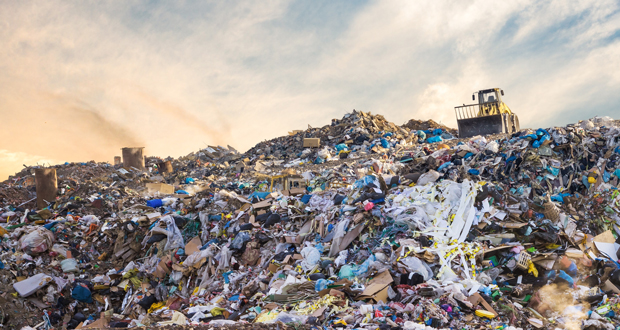London recycling and resource management firm, Bywaters has released its new report: What London’s waste says about us – revealing unique insights into Londoners’ habits, new trends, the aftermath of the pandemic, and new signs of societal decay.
Bywaters has released the report to help make the public, businesses and politicians aware of the challenges London is facing both on a practical waste level, and sociological level.
Throughout the pandemic, Bywaters recorded a significant waste increase, led by the growth in disposable PPE usage. Over the first two years, more than 5.6 billion items of PPE were delivered to England’s health and social care system, up from 2.43 billion in 2019. During the first peak of the virus, some hospitals used over 80,000 disposable face masks daily. This and societal changes led to vast quantities of PPE ending up in the recycling stream and being sorted by many waste management facilities, including the Bywaters facility in east London.
Bywaters has also noticed an acute increase in waste from the vaping industry. The amount of waste generated by vaping is now beyond staggering. During a major summer event in London, 129 kg of disposable vapes were found in Bywater’s waste collection, from just two days of operations. There is a clear need to find more sustainable solutions for such materials. The recycling rate for e-cigarettes also indicates that more needs to be done to ensure that they are disposed of sustainably. While the amount of vape waste found was troubling, it also provides an opportunity to highlight further the need for improved systems for processing these materials, especially if they have lithium batteries (such as vape pens).
The report also highlights a huge increase in nitrous oxide misuse – so far, the unique handling process for these canisters has cost Bywaters over £100,000 in the last year alone. The number of pressurised nitrous oxide canisters has drastically increased over the past two years, reaching a record high. Bywaters facility observed an immense surge in the summer months of 2022 compared to in those of 2021, collecting a much higher than expected total of 16,499 canisters between March and November.
Commenting on the new report, John Glover Jr, MD at Bywaters, said: “These insights are worth a closer look, with the difference in items telling a story on London in recent years, whilst providing an opportunity for us to highlight ways to make recycling more efficient for households within the city. Ultimately, London and the entire country’s approach to recycling needs to evolve and improve. What we recycle should be based on what people use, not what they can afford. For example, households should have specific bins for electronics now. We are calling for better nationwide education and resources that promote electronic recycling in households all around the country. The immediate environmental impact can be minimised significantly through increased awareness and programmes encouraging regular usage of (WEEE) recycling bins specifically designed for electronic products. This is would be highly achievable and relatively quick to deploy, especially in London.
“On top of this, there are significant waste challenges. Disposing of canisters is very costly and time-consuming. They are also unrecyclable and emit pressurised gas into the local atmosphere. Lithium batteries from vapes are plaguing the capital, and the continued wider use of PPE are also causing ongoing challenges for waste processors and recyclers throughout London. We very much hope this report opens the eyes of those who can make a difference when it comes to waste is managed and how we are developing as a society. Clearly, there are signs of decay that we collectively need to address. We have an opportunity to improve and fix these problems; learning from these reports will be a crucial part of the process going forward.”





